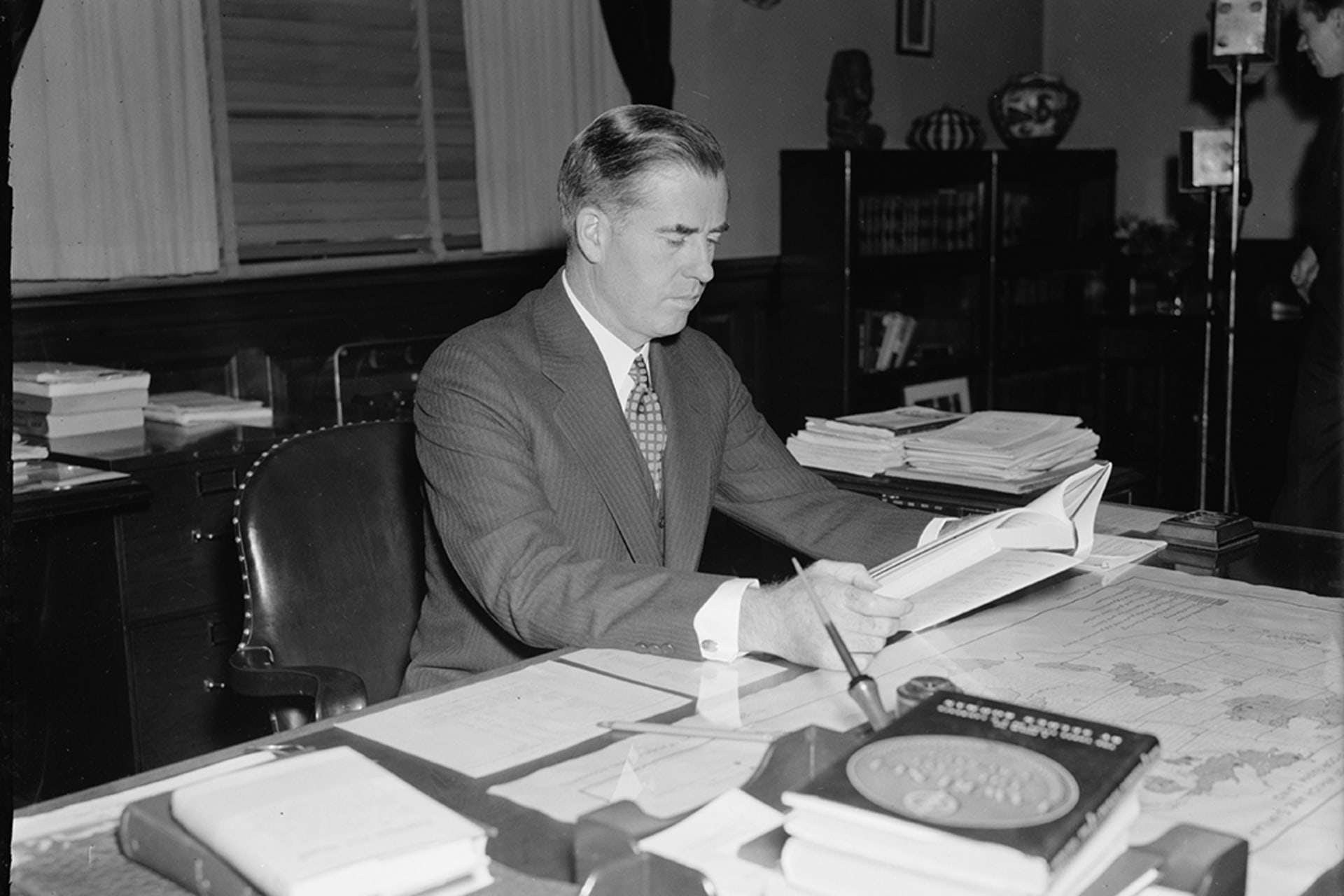The President’s Inbox Recap: Henry Wallace and the Origins of the Cold War
The post-World War II era would have looked very different had Henry Wallace become president.

The latest episode of The President’s Inbox is live! This week, Jim sat down with Benn Steil, senior fellow and director of international economics at the Council. They discussed Benn’s new book, The World That Wasn’t: Henry Wallace and the Fate of the American Century.
Here are four highlights from their discussion:
1.) The politicians who do not make it to the Oval Office are sometimes just as consequential in shaping U.S. foreign policy as those who do. Henry Wallace served as vice president during Franklin D. Roosevelt’s third term but not his fourth term. Wallace lost his vice presidency to Harry Truman as part of a multi-vote ballot at the Democratic National Convention in July 1944. Benn noted that the reason why Wallace is “such a compelling figure to discuss is not only because he is a fascinating human being, but because he would have become president in April 1945 when FDR died had he managed to keep himself on the ticket the previous July.”
2.) The post-war era would have looked different if Wallace had succeeded FDR. Wallace’s foreign policy views differed greatly from FDR’s and Truman’s. Benn noted that Wallace was “very close to the Soviet Union” and generally reluctant to criticize its policies. He opposed most of the major initiatives the United States undertook after World War II, including the Marshall Plan, the Truman Doctrine, and the creation of NATO.
3.) Wallace miscalculated American public sentiment on foreign policy when he ran as a third-party candidate for president in 1948. Wallace believed that Truman was vulnerable to charges that his tough line in dealing with the Soviet Union risked triggering another war. He was wrong. As Benn put it, “the American public had really turned staunchly anti-Soviet. And even though Wallace was trying to paint Harry Truman as a warmonger, much of the American public felt that Truman was not in fact being tough enough.” The result was “Wallace’s complete wipe out in the election. In the end, he was not the third-party candidate. He was the fourth-party candidate.”
4.) The Cold War would likely have still happened even if Wallace had succeeded FDR. Benn argued that “Stalin never valued peace with the United States for peace’s sake.” Benn added that Stalin “definitely valued the possibility of a passive United States that would allow him to fulfill his territorial expansion ambitions.” Wallace might have given Stalin that room for maneuver. Such “passivity in the face of what would’ve been Stalin’s expansion in Europe and Asia would have meant that when we did enter into the Cold War in 1948, when Wallace would certainly have been defeated, we would’ve done so at a major disadvantage.”
If you’re looking to learn more about Benn’s book, check out his book page and the accompanying giveaway, which runs until February 13.